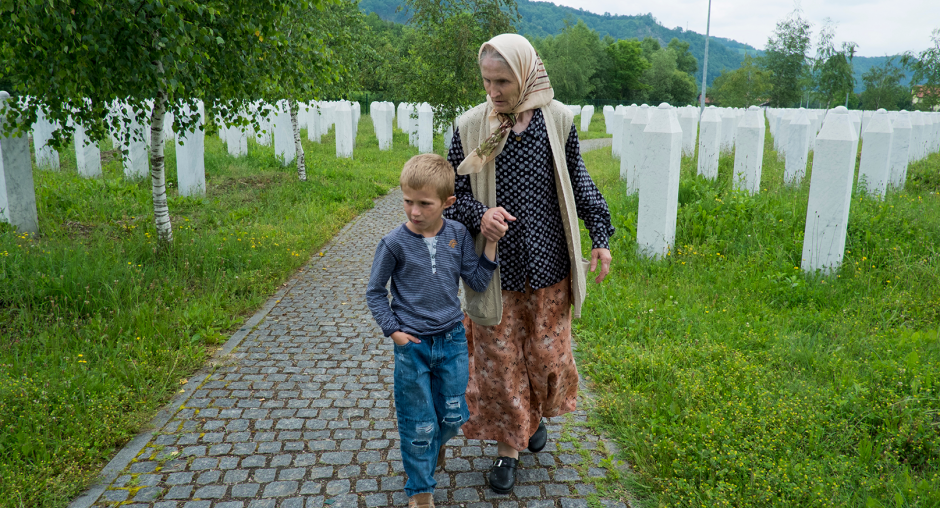Education vital to prevent escalation of violence that can lead to genocide, OSCE human rights head says on Srebrenica anniversary

WARSAW, 11 July 2020 – The importance of education and commemoration to promote tolerance and prevent the escalation of violence cannot be underestimated, the OSCE Office for Democratic Institutions and Human Rights (ODIHR) said on the anniversary of the Srebrenica genocide in 1995.
“Today is a day to mourn the victims and stand in solidarity with the survivors,” said ODIHR Director Ingibjörg Sólrún Gísladóttir. “But in the face of such a horrific crime, every one of us needs to ask ourselves honestly whether we are doing all we can to fight prejudice and exclusion, and what action we can take to foster greater tolerance.”
Twenty-five years ago today, thousands of mostly Bosnian Muslim men and boys were systematically and brutally murdered in Srebrenica, while more than 30,000 people were forced to flee to escape ethnic cleansing. The massacres in Srebrenica and the surrounding area were the culmination of more than three years of conflict, fuelled by toxic narratives and intolerance that eventually allowed the unthinkable to happen.
Perpetrators of hate-motivated violence in the OSCE region and beyond have intentionally drawn on symbols glorifying the Srebrenica genocide and its perpetrators. Education has a crucial role to play in improving understanding of these events, which in turn makes it possible to build a common and inclusive future based on mutual respect, understanding and co-operation.
Governments and national authorities must do more to support programmes and activities that can help equip their citizens with the knowledge and resilience needed to resist polarizing and nationalist rhetoric. In the long term, only societies built on a solid foundation of respect for rule of law, open dialogue and accountable institutions can be stable and safe for all citizens.
